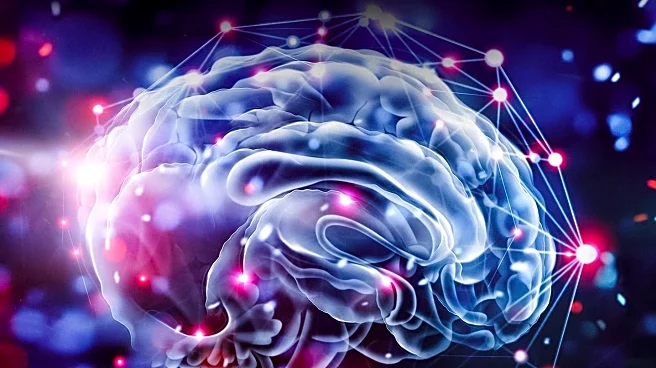What is the story about?
What's Happening?
A study published in Nature Communications suggests that engaging in creative hobbies such as dancing, playing music, or video gaming can slow brain ageing at the molecular level. Researchers used brain clocks to measure the difference between chronological age and brain age, finding that creative activities enhance brain connectivity in regions susceptible to ageing. The study involved participants from multiple countries, showing that even learning a new creative skill can have anti-ageing effects on the brain.
Why It's Important?
The findings highlight the potential of creative activities to promote neurological health and emotional well-being, offering a non-pharmacological approach to cognitive preservation. This research could influence public health strategies, encouraging the integration of creative pursuits into lifestyle recommendations for aging populations. It underscores the importance of mental stimulation in maintaining cognitive function and delaying age-related decline.
What's Next?
Further research may explore the specific mechanisms by which creativity impacts brain health, potentially leading to targeted interventions for cognitive aging. Public health campaigns might promote creative engagement as a preventive measure against cognitive decline, influencing educational and recreational programming.
Beyond the Headlines
The study raises cultural and ethical considerations about the value of creativity in society and its role in enhancing quality of life. It challenges traditional views on aging and health, advocating for a holistic approach to cognitive preservation.















